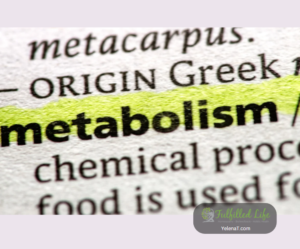Have you ever noticed how your emotional state affects your physical well-being? Have you experienced physical symptoms that seem to have no clear explanation or cause? The mind and body are deeply interconnected, and emotional and psychological factors can have a significant impact on physical health. In this article, we will explore how emotional and psychological factors can contribute to physical symptoms and discuss how to address the underlying issues for optimal healing.
The Mind-Body Connection
The mind-body connection is a well-documented phenomenon that has been studied extensively in fields such as psychology, neuroscience, and medicine. For example, studies have shown that chronic stress can lead to changes in the brain that increase the risk of developing depression and anxiety disorders. Chronic stress can also have a negative impact on the immune system, making us more susceptible to infections and illnesses.
When we experience stress, anxiety, or other emotional distress, it can trigger physical symptoms such as headaches, muscle tension, digestive problems, and even chronic pain. These physical symptoms can persist long after the initial emotional trigger has passed, leading to a cycle of physical and emotional distress.
Another example of the mind-body connection is the placebo effect, which occurs when a person experiences a therapeutic benefit from a treatment that has no active ingredient. This effect is thought to be due to the power of the mind to influence the body’s physical response.
In addition to stress and the placebo effect, other emotional factors such as grief, anger, and fear can also impact our physical health. For example, research has shown that individuals who experience chronic anger may be at increased risk for heart disease, while those who experience chronic fear may be at increased risk for digestive problems.
On the other hand, positive emotions such as joy, love, and gratitude have been shown to have beneficial effects on physical health. For example, studies have found that individuals who practice gratitude have better sleep quality, improved immune function, and lower levels of inflammation.
Overall, the mind-body connection is a complex and multifaceted phenomenon that highlights the important interplay between our thoughts, emotions, and physical health. By understanding this connection, we can take steps to promote our overall well-being and lead healthier, more fulfilling lives.
Addressing the Underlying Issues
To address the root cause of physical symptoms related to emotional and psychological factors, it’s essential to address the underlying issues. This often involves exploring and processing emotions, learning stress management techniques, and creating a supportive environment for emotional well-being. Specific techniques that may be helpful include:
Mindfulness Meditation: Mindfulness meditation involves focusing on the present moment and developing an awareness of thoughts and emotions without judgment. This practice can help individuals become more aware of their emotional state and reduce stress levels.
Identify and process emotions: Take time to identify and process emotions in a safe and non-judgmental environment. This may involve journaling, talking to a trusted friend or therapist, or practicing mindfulness meditation.
Practice Stress Management: Stress can be a significant factor in the mind-body connection, so it’s important to practice stress management techniques. Simple techniques such as deep breathing exercises, taking a walk outside, or practicing yoga can be helpful.
Supportive Relationships: Having a supportive network of friends and family can provide a sense of connection and comfort during times of emotional distress. Supportive relationships can also help individuals feel less isolated and provide opportunities for processing emotions in a safe and non-judgmental environment.
Try Expressive Therapy: If you struggle to articulate your emotions verbally, expressive therapy such as art or music therapy can be helpful for processing emotions and working through underlying issues.
Holistic Healing: Holistic healing approaches, such as naturopathy, can be helpful for addressing physical symptoms related to emotional and psychological factors. These approaches focus on treating the whole person, including the mind, body, and spirit, and may include dietary changes, herbal remedies, and other natural interventions.
Practice Self-care: Self-care is essential for promoting emotional well-being. Make sure to prioritize activities that you enjoy, such as reading a book, taking a bath, or spending time in nature.
Challenge Negative Thoughts: Negative thoughts can contribute to emotional distress and physical symptoms. Challenge negative thoughts by asking yourself if they are realistic, and if there is evidence to support them.
Learn Relaxation Techniques: Relaxation techniques such as progressive muscle relaxation or guided imagery can be helpful for reducing stress and promoting relaxation.
Set Boundaries: Setting boundaries is an important part of maintaining emotional well-being. This may involve saying no to requests that don’t align with your values or prioritizing your own needs over others.
Practice Gratitude: Practicing gratitude can be a powerful tool for promoting emotional well-being. Take time each day to reflect on the things in your life that you are grateful for, and express your gratitude to others.
Remember that healing from emotional and psychological distress takes time and effort, but it is possible. By taking steps to address the underlying issues and promoting emotional well-being, you can improve your overall health and reduce physical symptoms. If you need support, don’t hesitate to reach out for help and schedule a free consultation. I can help you identify the root cause of your symptoms and create an action plan to support your healing journey. Remember, you are not alone, and there is always hope for healing.








